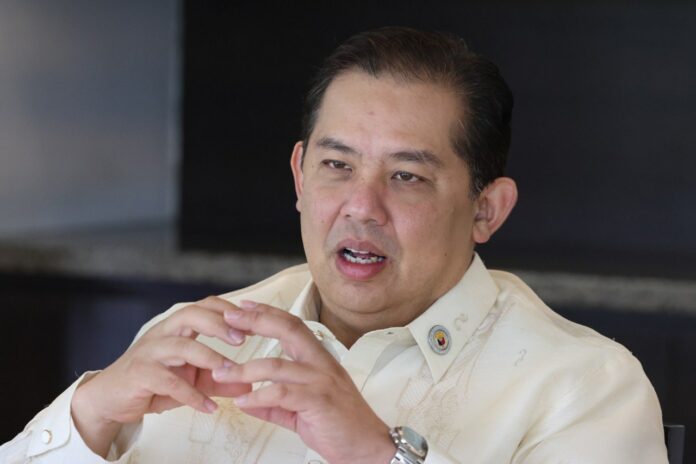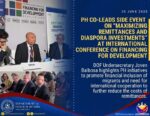REELECTED Leyte 1st District Rep. Ferdinand Martin G. Romualdez has filed a bold and long-overdue proposal to modernize the country’s Bank Secrecy Law—empowering regulators to better combat corruption, fraud, and other financial crimes that continue to undermine public trust.
House Bill (HB) No. 7, which Rep. Romualdez, filed at the opening of the 20th Congress, seeks to amend Republic Act (RA) No. 1405 to allow the Bangko Sentral ng Pilipinas (BSP) to examine bank deposits—including foreign currency accounts—under strict and limited conditions where there is reasonable suspicion of unlawful activity.
“We want to send a clear message: the Philippines should no longer be a safe haven for dirty money,” Rep. Romualdez said. “If we want honest governance and a stronger financial system, we must update our laws and give our regulators the tools they need to protect the people’s money.”
Rep. Romualdez, who served as Speaker in the 19th Congress, is joined by Tingog Party-list Reps. Andrew Julian Romualdez and Jude Acidre as co-authors of the measure.
They explained that while the Bank Secrecy Law was originally intended to promote savings and banking confidence, its outdated provisions have been exploited to hide criminal activity—making it difficult for regulators and investigators to uncover wrongdoing.
“In its current form, the law is being used to shield illegal acts such as money laundering, tax evasion, and corruption. That needs to change,” Rep. Romualdez stressed.
Under the proposed measure, the BSP may examine deposits when its Monetary Board finds reasonable ground to suspect fraud or financial misconduct involving bank officials, stockholders, employees, or those connected to entities under BSP supervision. The bill also covers investigations of closed banks and includes foreign currency accounts, except those in member-based thrift associations.
To prevent abuse and protect the privacy of law-abiding depositors, any findings by the BSP will be strictly for internal use—shared only with specific agencies such as the Securities and Exchange Commission (SEC), Philippine Deposit Insurance Corporation (PDIC), Anti-Money Laundering Council (AMLC), Department of Justice (DOJ), or the courts, and only when legally necessary.
The measure clearly defines what constitutes “deposits” and assures full protection to banks and financial institutions that comply with lawful BSP orders. No bank, officer, or employee will be held liable for good-faith compliance.
On the other hand, unauthorized disclosure of any information will be met with stiff penalties—imprisonment of two to ten years and a fine of P50,000 to P2 million—to uphold the integrity of the system.
“This is about accountability, not overreach,” Rep. Romualdez emphasized. “We are making sure that while we strengthen transparency, we also protect the privacy of ordinary citizens.”
The bill is designed to bring the Philippines closer to international best practices and remove barriers that hinder the fight against illicit finance.
“In a time when Filipinos are demanding more honest leadership and cleaner governance, this bill is a concrete step forward,” Rep. Romualdez said. “We cannot fight corruption with blindfolds on.”
Rep. Romualdez stressed that empowering the BSP to act within clear, legal boundaries will reinforce institutional oversight, build investor confidence, and protect the country’s financial system from abuse. (END)







